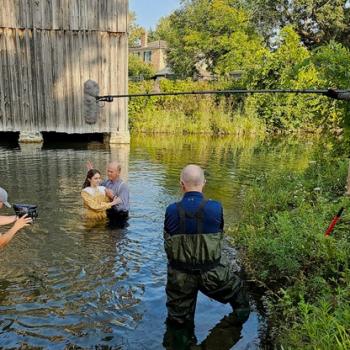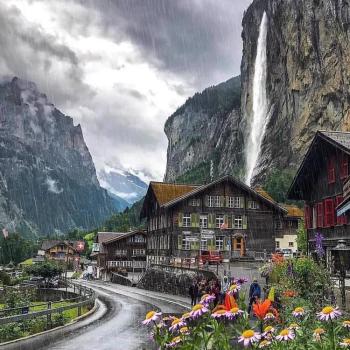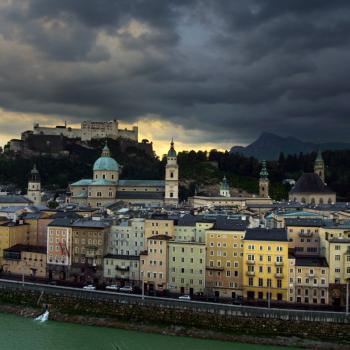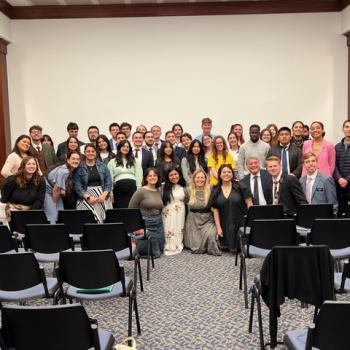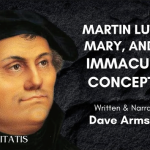
Tad Walch, of the Deseret News, has written a number of thoughtful and interesting articles on Latter-day Saint subjects, and this piece is certainly among them:
“Pope Francis meets with President Nelson in the Vatican”
If you haven’t already read it, I encourage you to do so, even if you think that you already know all you need to know about the meeting of the Prophet and the Pontiff in Rome the other day. It offers a fascinating glimpse of the recent history of relations between the Catholics and the Latter-day Saints, as well sketching the cooperation of the two churches on humanitarian projects, which is, I suspect, much more extensive than many people realize.
One dimension that could have been included would be the efforts of the pre-2012 Maxwell Institute to digitize documents in the Vatican Apostolic Library. That story needs to be written down before it’s lost. I was somewhat involved in the project, which involved (among other things) meetings with several cardinals at the Vatican.
Also by Tad Walch:
“President Nelson refers to apostles Peter, Paul during Rome Temple dedication”
***
Washington Post: “After decades of behind-the-scenes diplomacy, leaders of Catholic, Mormon churches meet in Rome”
Voice of America: “Center of Christianity Has its First Mormon Temple”
***
I recently read a very negative discussion of the missionary program of the Church of Jesus Christ of Latter-day Saints, arguing that the Church keeps its missionaries in a cultural bubble, restricting them from immersing themselves in local theater, music, literature, and art, and thus effectively preventing them from being more than robotic, cookie-cutter, uncultured, small-minded, provincial cultists.
It’s true, of course, that missionaries in Japan don’t spend much of their time reading The Tale of Genji (源氏物語 Genji monogatari), that missionaries to Russia don’t often return as experts on either Dostoyevsky or Shostakovich, and that missionaries in Austria don’t typically study Gustav Klimt and the Vienna Secession.
But they return well equipped to become very knowledgeable on those topics if they so choose — I didn’t serve in Austria, but my wife and I are very fond of Klimt, have visited sites associated with him and his movement, and own several reproductions of his work — because, where it’s applicable, they typically learn the languages of their assigned areas better than they would from multiple college courses in Japanese, Russian, or German. And that’s an inestimable gift. Moreover, by the end of their missions, wherever they serve, they will have spoken with and been in the homes of thousands of people, of all socio-economic, educational, and religio-philosophical backgrounds, giving them a familiarity with ordinary daily life and with a range of congenial and uncongenial worldviews in Japan, Russia, or Austria (or Bolivia, or Louisiana, or New Zealand, or Thailand, or Ghana, or Finland, or Brazil, or Australia, or British Columbia, or the Dominican Republic, or Scotland, Romania, or Mexico, or Wisconsin, or Korea, or South Africa, or wherever) that no semester-abroad program could ever bestow.
Moreover, I don’t know how atypical my mission was, but it was on my mission that I became acquainted (at the Oper Zürich) with Mozart’s Die Zauberflöte, and learned to love it. I can read Goethe and Schiller and the lyrics of Wagner’s opera in the originals because of my mission. It was on my mission that I learned at first hand about Swiss foods and culture, about Alpenhorns, about seasonal aspects of cowherding and cheese production, about the folklore of the Bernese Alps, about the political side of religion in the Swiss Confederation, about the subtle differences between Zürchers and Berners and Appenzellers, about the country’s citizen army, and so on and so forth. My early residence in Switzerland, along with the love that I developed for Alpine Europe in general and Switzerland in particular, has been a source of continuing blessings and happiness to me. And I expect that I’m not the only returned missionary whose life has been altered for the good — even leaving religious considerations out of the picture — by my experience.
And, although it’s deteriorated rather badly (as can be readily detected from the recording below), I’ve made use of my German ever since — most recently a couple of days ago:
“Daniel Peterson – Freiberg Temple Stake Education Day”
(The text for the brief talk above can be found here: “Ihr seid — wir sind — seine Zeugen.”)







